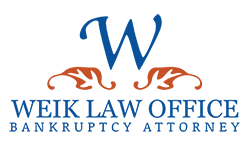GET HELP TODAY

Filing for Chapter 7 or Chapter 13 bankruptcy in Raleigh is a big step toward getting your finances under control. It can be a smart financial decision for many individuals who have been recently unemployed or are facing overwhelming debt. However, various factors must be considered in the direction of your bankruptcy filing, including your employment status.
Employment and Bankruptcy
Many people have the wrong notion that you need to lose it all – your job, your properties, and more – in order to qualify for bankruptcy. That is not true for all cases; you can still be eligible for bankruptcy whether you are employed or unemployed. However, your employment and income status will primarily affect the type of bankruptcy you can apply for.
Filing for bankruptcy in Raleigh, NC can depend on factors such as:
- Length of time you have been unemployed
- Your income at your previous job
- Whether you have a new job lined up or not
- Your other sources of income
- Whether you are planning on filing for Chapter 13 or Chapter 7 bankruptcy
Aside from these factors, other aspects are also considered. For example, your application for Chapter 7 may not be approved if the job you lost recently is high-paying. On the other hand, if you do not have any source of income upon filing for bankruptcy, you might not be able to manage the payment plan required by Chapter 13. That is why it is essential to work with a bankruptcy attorney in Raleigh to help you figure out your options.
Chapter 7 and Employment
Filing for Chapter 7 eliminates most, if not all, of an individual’s unsecured debts. However, not everyone is eligible for Chapter 7. But if you are currently unemployed, it might be easier to qualify.
When filing for Chapter 7 bankruptcy, you will be asked to undergo a means test. This two-part test involves:
- Comparing your total income against the state median income If the amount of your income (total gross income of your family during the past six months before filing) is below the state median, you can qualify for Chapter 7. However, if it lands above the state median, you will need to go through the second step.
- Subtracting allowable expenses from your income This step will determine your disposable income by deducting specific costs from the gross. This can include childcare, mandatory income deductions, utilities, food, housing, and income taxes. If you do not have enough for a monthly payment plan, then you are likely to qualify for Chapter 7.
Some circumstances may get in the way, however, such as getting a new job or being freshly unemployed. Seek guidance from a bankruptcy lawyer in Raleigh, NC to help you understand this process better.
Chapter 13 and Employment
In contrast, Chapter 13 requires debtors to have a regular income to develop a repayment plan for all their debts. Under this chapter, debtors are granted three to five years to pay off their creditors.
If you are unemployed, you can cast your worries aside. You can still file for Chapter 13 even if you do not have a job, but you have to prove that you have other verifiable sources of income, such as rentals or businesses.
Recently Unemployed and Struggling with Debt?
If you just lost your job and facing overwhelming debt, do not lose hope. Bankruptcy laws are designed to help good people like you to regain control and start anew. Call Weik Law Office today at 919-845-7877 for a free consultation, and set up a time to speak with one of our professionals.
